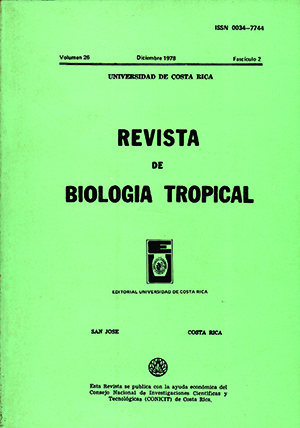Abstract
During meiosis and espermiogenesis the Golgi apparatus show-s the greatest morphological and physiological changes. During the second meiotic division it appears as a very large organelle, formed by prominent dictyosomes and by two types of vesicles: one in the external part of the body with diameters that range from 40-100 nm, and the other in the central part of the organelle, larger in size, from 200 to 500 nm. The acrosome, once formed, is spheric (1600 nm in diameter) with the glycoproteins forming a round and dense body occupying its central zone. Later the acrosome moves against the nuclear membrane. These morphological changes occur within a very short time, while the spermatid practically continues occupying the same position in the cellular association of the seminiferous tubule.References
Adamston. F. B. 1959. Reaction of the Golgi apparatus of the intestinal cells of the rat to the ingestion of a neutral factor fattyacid. Morphology, 105: 293-315.
Beams. H. W. & R. G. Kessel 1968. The Golgi apparatus: structure and function. Int. Rev. Cytol., 23: 209-276.
Bcams. H. W., A. W. Sedar, & T. C. Evans 1953. Studies on the neurons of the grasshopper with special reference to the Golgi bodies, mitochondria and neuro fibrillae. Cellule, 55: 193-305.
Beams, H. W., V. L. van Breeman, D. M. New Fang, & T. C. Evans 1952. A correlated study on spinal ganglion cells and associated nerve fibers with the
light and electron microscopes. Comp. Neurol., 96: 249-281.
Beams, H. W., & T. N. Tahmisian 1953. Pllase contrast and etectron microscopc studies on the Golgi bodies and mitoehondria of the germ cells of Helix aspera. Cytologia, 18: 157-166.
Brükdman, J. 1963. h n e stnKI lHl' 01' ¡rcrm cell.
Comments

This work is licensed under a Creative Commons Attribution 4.0 International License.
Copyright (c) 1978 Revista de Biología Tropical






